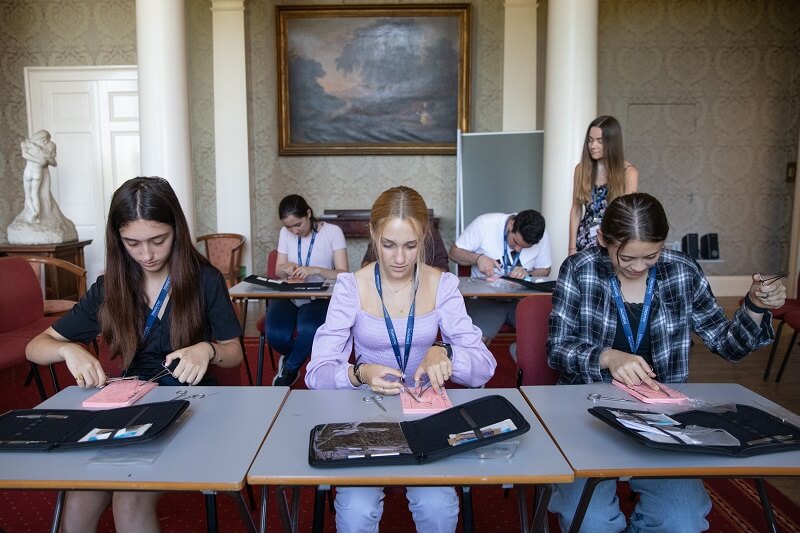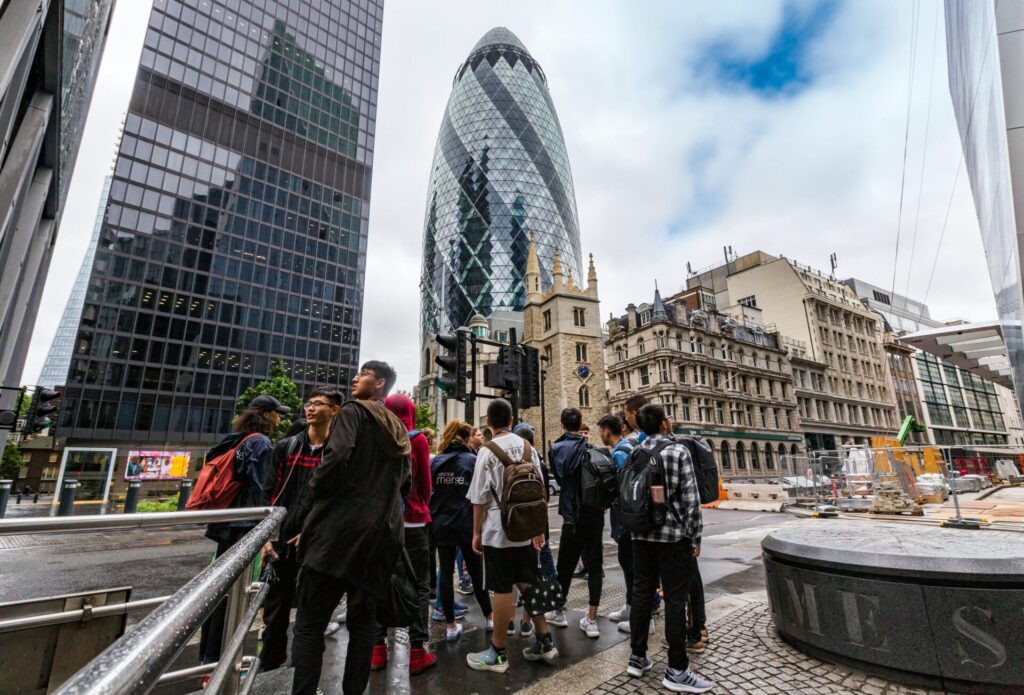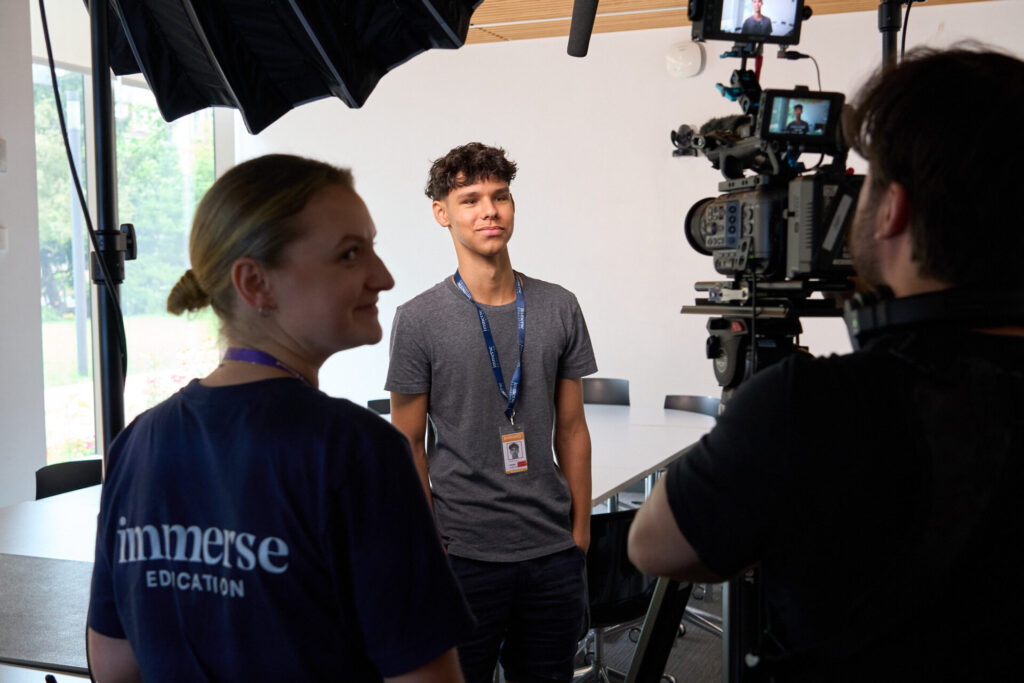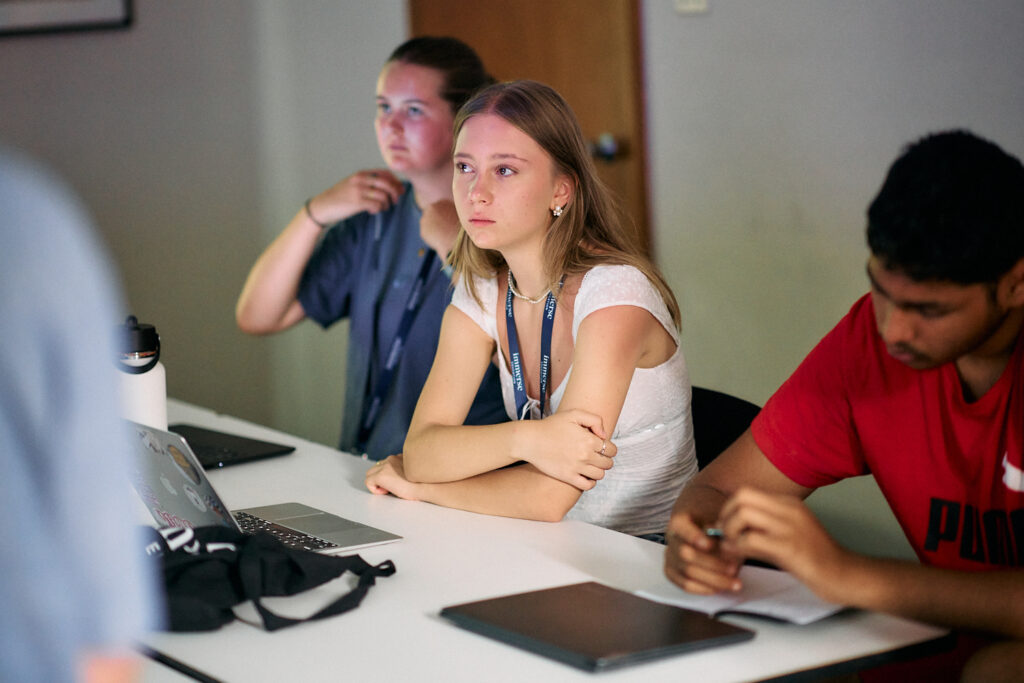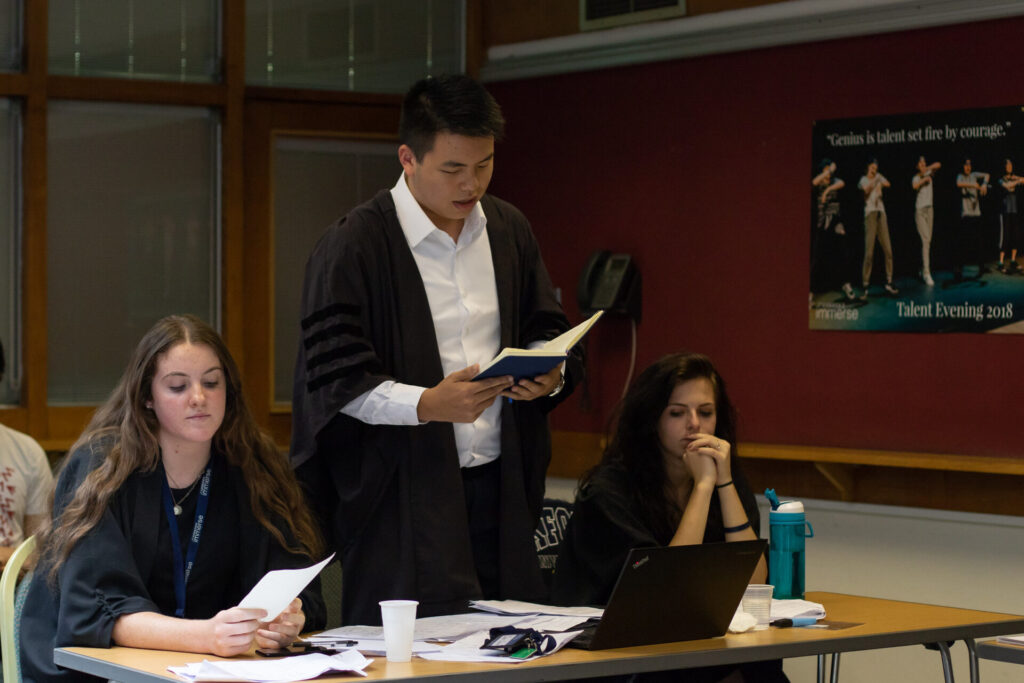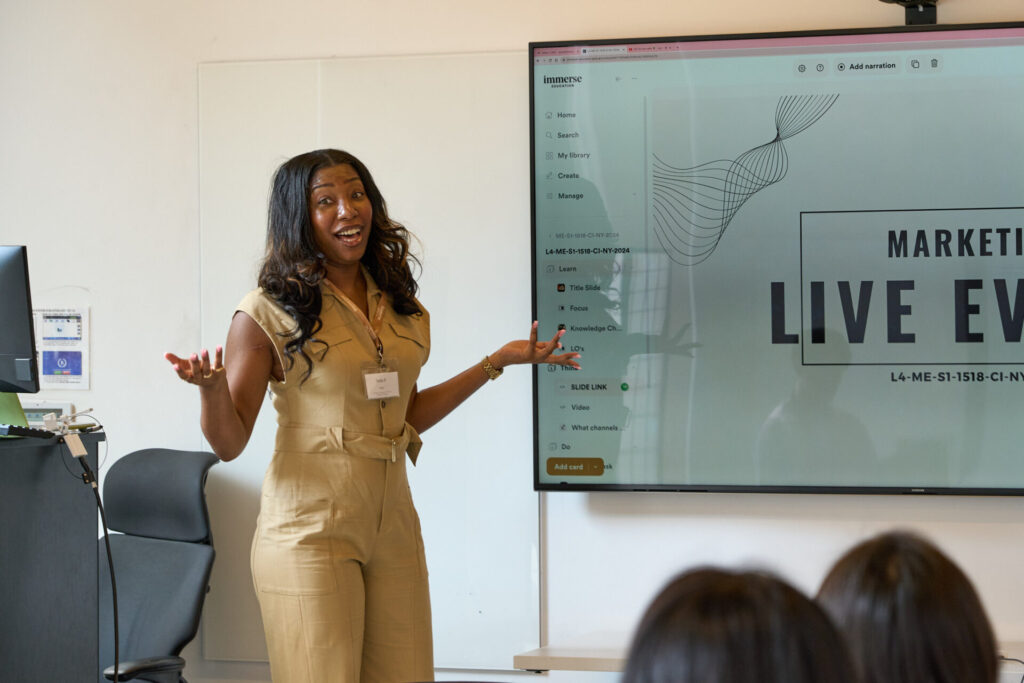Do you have an eye for fashion and creative design? The fashion industry could be the perfect fit for you, but getting your foot in the door can be really challenging. Even if you study fashion at university, it’s a difficult arena. In fact, just over half (54%) of UK fashion graduates go on to a career in fashion or design.
That said, it’s not impossible, and if you’re passionate about fashion, it’s worth doing. This guide will explain everything you need to know about getting into the fashion industry, from choosing a career to building a portfolio and gaining meaningful work experience. This article was created in collaboration with Ilyssa Wexler, a seasoned professional with a unique blend of business, communications and fashion experience. Ilyssa is our Industry Expert for our 2024 New York Fashion & Design programme.
Choose Your Career in the Fashion Industry
Fashion is an incredibly diverse sector. While many people’s minds go straight to fashion design, there are actually tons of jobs to suit a range of skill sets.
Below are just some of the careers you can do in fashion. By the way, it’s a good idea to not restrict yourself too early on. After all, fashion has a lot of crossover with other industries, so there are many ways to land your dream career. If you keep an open mind, you never know what opportunities might come your way.
Design
Creative, fashion-forward people usually opt for a career in fashion design. Again, the ‘design’ aspect of fashion has many subsets. This includes:
- Textile designer: Determines the look and structure of textiles used in garments. Sometimes, this has a large crossover with science, with the development of smart textiles and other technological advancements.
- Fashion illustrator: Creates the conceptual sketches of an outfit.
- Garment technologist: Tests fabrics and textiles for their quality and safety.
- Pattern cutter: Creates a workable pattern for manufacturing to bring the designer’s vision to life.
- Fashion designer: Designs garments and accessories for a fashion line.
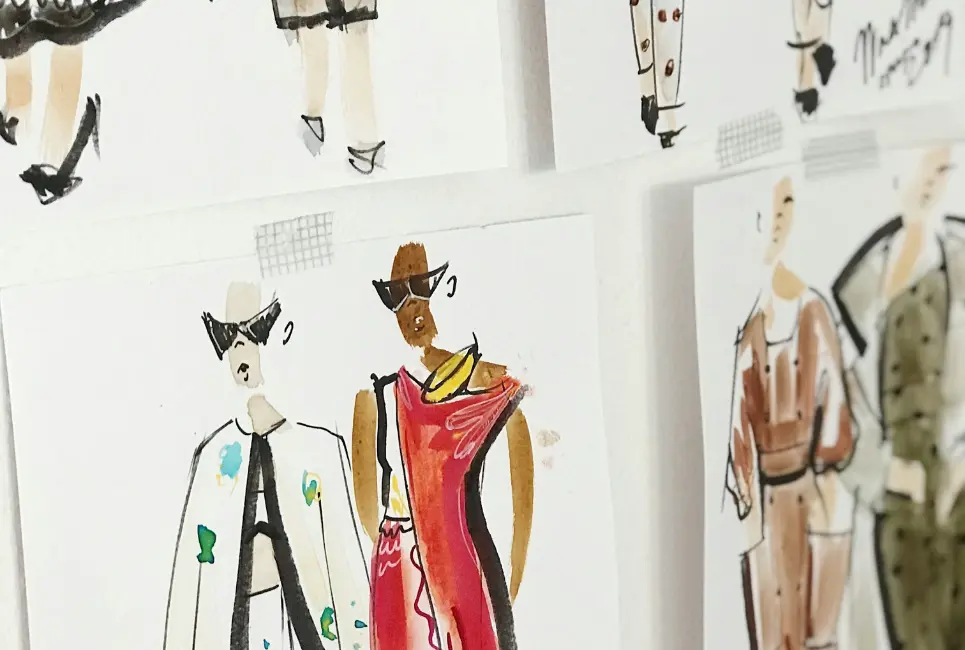
Merchandising
Retail is another option. Again, there are many subsets of fashion merchandising, including:
- Store owner: Owns and manages a boutique store, either online or at a physical retail location.
- Fashion buyer: Decides which products a retailer/brand sells.
- Fashion merchandiser: Determines stock levels, sales, and offers to maximise a brand’s profits.
- Visual merchandiser: Designs the window displays and layout of a store to maximise sales.
For retail positions, business degrees are often more useful than fashion degrees alone.
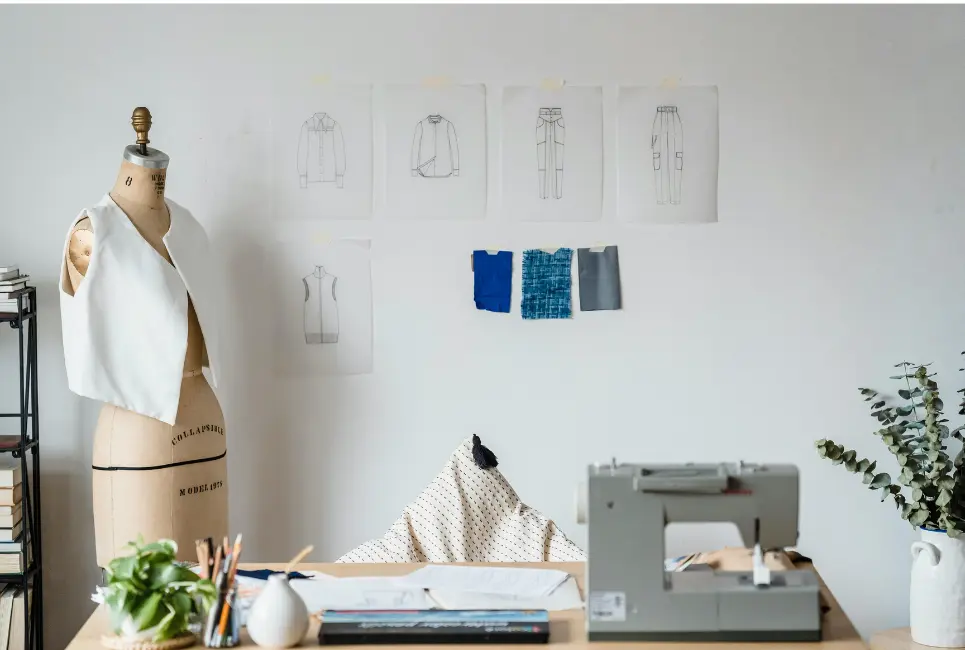
Styling
Stylists are the ones who bring everything together. They breathe new life into the pieces designed by designers to create outfits.
This career category includes stylists, responsible for catwalks, photoshoots, concerts, and films, and it also includes personal shoppers. The latter advises either retail customers or celebrities on their fashion choices.
Marketing
Marketing is a broad career, but many people within it are fashion specialists. Fashion marketers can work with small brick-and-mortar boutiques, fashion magazines, or designer labels.
There are lots of jobs within this sector, too, including:
- Social media manager: Manages the brand’s social media and creates content for social campaigns.
- Copywriter: Writes ad copy for fashion websites and newsletters.
- Fashion marketer: Designs ad campaigns to improve brand awareness.
- Influencer: Improves brand awareness and boosts image through paid partnerships with a fashion brand.
Editorial
In fashion, editorials refer to magazines and other publications. There are lots of jobs in the editorial space, and not all of them require fashion degrees. Instead, careers like photography need portfolios, and writers can study for a degree in journalism or creative writing.
Here are some of the options in this space:
- Editor: Commissions fashion articles and checks each piece fits the branding for the magazine.
- Fashion writer/journalist: Writes articles, columns, and interviews on the latest news in fashion. This is perfect for students adept at essay writing.
- Fashion blogger: Writes articles or newsletters about fashion for a personal blog. Similar to an influencer.
- Fashion photographer: Takes pictures of fashion models or celebrities for a publication.
- Graphic designer: Devises the visual appearance of magazines and websites, including the layout and text.
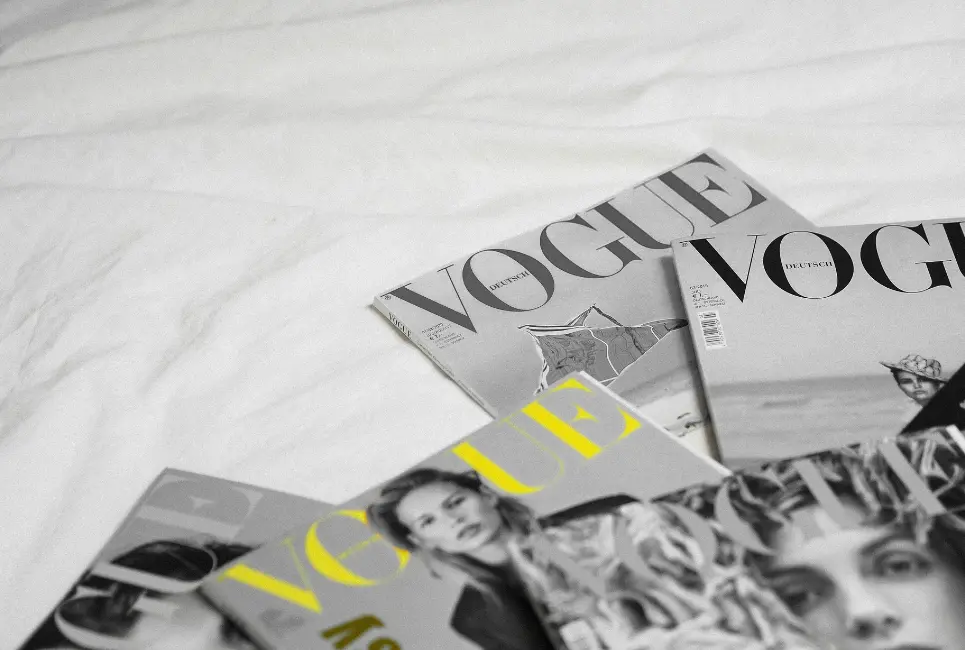
Develop Your Skills in Fashion
If any of the above careers appeal to you, you could be destined for a career in fashion.
You’ll need some skills to get started. Many of these are transferable soft skills that you can pick up elsewhere. These include:
- Work ethic
- Time management
- Teamwork
- Communication skills
- Professionalism
- Analytical skills
- Creativity
Depending on your chosen job, you’ll then need to hone your specific skills. For example, aspiring fashion photographers can take a photography course to learn the techniques they need behind the camera.
Here are the ways you can develop your skills to get into fashion:
- Take a relevant degree
- Look for opportunities in fashion
- Stay on top of trends
- Build a portfolio
- Network with others
Next, we’ll dive into these avenues in more detail.
Look for a Fashion Design Degree
A formal education in fashion can certainly help you get your foot in the door. A degree gives you the chance to learn theory and history alongside completing hands-on projects that look great in your portfolio. Plus, if you study at a top school, you may meet people who can help you in your journey.
For example, many university fashion courses involve summer internships or graduate internships. Through connections with your university, you can wind up thrust into the world of fashion the moment you graduate.
It’s worth noting that ‘top’ fashion schools vary from the universities you might think of as the best institutions. For example, while the University of Oxford often tops the Times Higher Education guide, it’s not renowned for its fashion course. Instead, the Business of Fashion lists Central Saint Martins College of Art and Design, Kingston University, and the University of Westminster as the three best contenders.
You don’t always need a degree to get into fashion. In fact, there are plenty of successful people who are self-taught. However, a formal education can help you build the skills and confidence you need to succeed. Make sure you find a course that suits your interests and don’t just take a degree in fashion design; you can study writing, history, photography, art, or a variety of other subjects.
Join the Immerse Education 2025 Essay Competition
Follow the instructions to write and submit your best essay for a chance to be awarded a 100% scholarship.

Look for Fashion Opportunities
Aside from a formal education, you’ll need hands-on skills to succeed in the fashion world. In-person career-focused summer courses like Immerse Education’s Fashion and Design Summer Programme are perfect for giving you a glimpse into the industry.
Here are some other opportunities to look for.
Apprenticeships
Apprenticeships can offer a great alternative to university, giving you an education and opening doors while providing more hands-on experience.
There are numerous Intermediate (Level 2) and Advanced (Level 3) apprenticeships in the world of fashion. You can even specialise in specific topics, like leather goods, footwear, or textiles.

Internships
Following an apprenticeship or university degree (or even some self-teaching), you can try to land an internship. Often, internships are fantastic networking opportunities, and they look attractive to potential employers. You may even land a job at the company you intern for.
Most fashion internships last between three months and one year. Landing a place is competitive, so keep your eyes peeled and apply quickly. You can find internships at e-commerce retailers like ASOS, magazines like Tatler, or design houses like Alexander McQueen.
Be open-minded when you’re applying. Look for internships with start-ups, blogs, and media costume departments, and don’t be afraid to put yourself out there and enquire even if you don’t see a listing available.
Work Experience
Students can pursue work experience in fashion well before they graduate with an apprenticeship or degree. In such a dynamic industry, a day or a week can be transformative. Picture a day backstage at a high-energy fashion show, where Ilyssa orchestrates the seamless coordination of teams, ensuring smooth operations amidst the flurry of activity. Here, the fusion of creativity and logistical precision is palpable as models strut down the runway, showcasing creations crafted with passion and vision. Such hands-on experiences not only provide a glimpse into the inner workings of the industry but also instill a deep appreciation for the economic implications and social responsibilities inherent in fashion practices, as well as developing a host of soft and hard skills.
This summer, as our fashion industry expert, Ilyssa will guide Immerse’s Fashion & Design Career Insights students through industry landmarks. In the LARUICCI Showroom, the fusion of creativity and commerce will be palpable, offering a firsthand glimpse into the realm of high fashion. Similarly, at Mood Fabrics, the filming location for ‘Project Runway’, aspiring designers witness the magic of fabric selection and garment construction, learning the intricacies of bringing their creative visions to life.
For more fashion-related work experience ideas, read our articles 165 ideas for work experience for year 12 and 145 ideas for work experience for year 10.
Online Courses
Even without a degree, you can study an online course in fashion to gain some background knowledge. A short course is often more budget-friendly, but will still give you some excellent knowledge to show off in job interviews.
For example, Bloomsbury and FutureLearn have a range of fashion courses you can study. These include Product Design and Manufacturing Processes, Fashion Marketing and Research, and Business Law in the Fashion Industry.
Freelancing
If you’re completely lost and struggling to land a job but you have lots of ideas, try freelancing. Whether you want to start your own business or test the waters, this can give you some great experience.
For example, if you’re a fashion photographer, establish a business and market your work. Slowly, you can build a roster of fashion clients who pay you for your work. Or, if you’re a writer, write pieces you’re interested in and pitch them to various clients.
You can find clients through social media, job boards, freelancing sites like Upwork and Fiverr, and networking. In fashion, it often comes back to that all-important networking.
Freelancing can feel scary, but putting yourself out there is often the best way to get noticed.
Educate Yourself About a Career in Fashion
Whether you’re just starting out in your career or you’ve already found a job, it’s essential to keep up to date. The fashion industry moves fast, with a trend cycle that’s constantly on the move. What with the advent of micro-trends, it’s even more important to stay on top of things.
How to Stay on Top of Industry Trends
Thankfully, there are plenty of ways to learn. You can try:
- Books
- Podcasts
- Online articles
- YouTube videos
- Podcasts
- Documentaries
- Online courses
Surround yourself with fashion so that you can stay up-to-date. The more you immerse yourself, the more you’ll learn.
Ideally, you should tailor the topics of these mediums to suit your goals. The internet is vast, so there will be a niche corner of it with specialists in your chosen field. For example, fashion designers can learn a lot from The Wardrobe Crisis podcast.
Making an effort to continuously expand your knowledge will make you attractive to employers, and it will also help you succeed in your business.
The Future of the Industry
It’s a great idea to dive in and learn about the trends that are shaping the industry.
Looking ahead, the future of fashion is poised for a technological revolution. Ilyssa predicts significant advancements in sustainability, virtual reality, and artificial intelligence over the next 5-10 years. In Ilyssa’s words, “Technology and innovation will reshape how we design and produce clothing, with profound economic implications for the industry”. In light of these changes, she advocates for equipping students with skills in digital design, data analysis, and sustainable practices to thrive in an increasingly digitized and eco-conscious landscape.
Amidst the glitz and glamour of the fashion world, sustainability is also emerging as a pressing concern. Ilyssa notes a noticeable shift towards integrating sustainable practices and technologies into day-to-day operations. “Digital and virtual presentations at fashion shows significantly reduce environmental footprints and operational costs,” she observes. Such initiatives not only appeal to environmentally conscious consumers but also underscore the industry’s commitment to responsible practices.
Key Players in Fashion
If you’re looking for ways to learn about fashion, you need to be aware of who this industry’s key players are. This includes publishing companies responsible for the best magazines and clothing companies with a monopoly on the market. Check out their blogs and publications to stay up-to-date.
Here are some key players:
- Condé Nast: This publishing company owns a huge range of fashion magazines, including Glamour, Vanity Fair, GQ, Vogue, and Tatler.
- Hennes & Mauritz (H&M): This Swedish clothing company employs over 130,000 people.
- Inditex: This Spanish company owns many high-street fashion brands, including Bershka, Zara, and Massimo Dutti.
- Nike: Although it’s known as a sports brand, Nike is one of the largest clothing retailers in the world.
Not only should you look to consume the content published by these brands, but you can also try to network with their employees. That said, don’t neglect independent stores and boutiques when job-hunting.
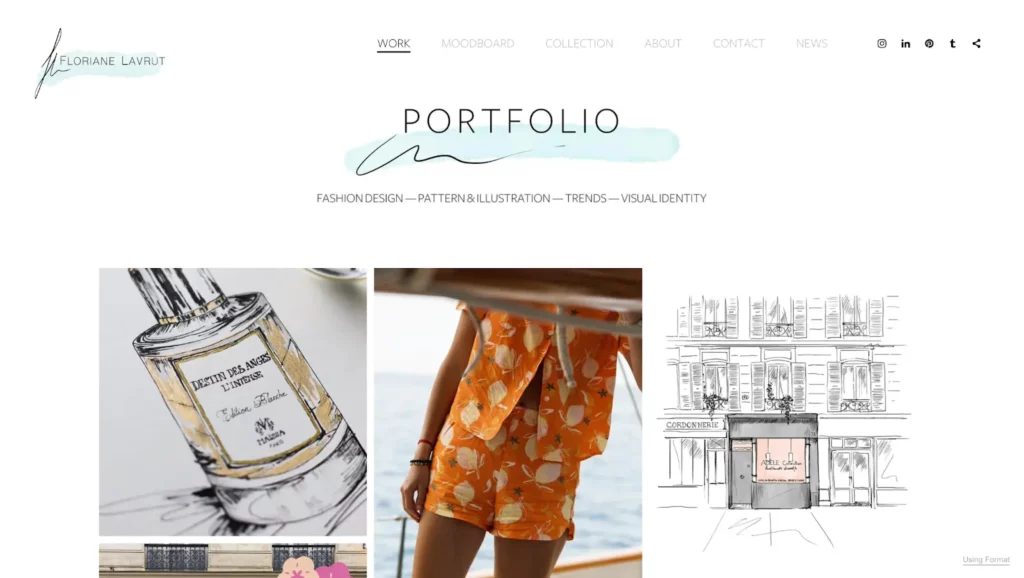
Screenshot of Floriane Lavrut’s portfolio.
Build Your Portfolio
No matter what avenue you take to get into fashion, having a portfolio is essential. This shows potential employers your creative prowess. No matter what role you work in, a portfolio can highlight your skills and experience.
If you want to create a portfolio, here are some tips:
- Choose your best pieces of work and show them in an artistic way.
- Write case studies to accompany photo evidence. Show your unfinished work and talk about the design process or how you overcame challenges.
- Tell a story with your case studies. Create a beginning, middle, and end with a clear narrative.
- Explain your vision throughout. Viewers shouldn’t feel lost.
- If you’re just out of school, feel free to include creative projects you worked on such as fashion essays or artwork.
Take Floriane Lavrut’s portfolio, for example. Her dynamic website shows everything she can do, ranging from textile design to styling. Meanwhile, knitted textiles specialist Linxi Zhu immediately makes it clear how her expertise in fabrics can be used to make exciting designs. Her Samsung case study is particularly interesting, highlighting fashion’s intersections with other fields like technology.
Finally, menswear editorial stylist Anish Patel shows off examples of his best work in his simple, clean portfolio.
Crucially, your portfolio should be all about you. While you can take inspiration from others, it’s important that it highlights your personality.
Build a Network
Connecting with industry figures is a crucial aspect often overlooked in the journey towards a fashion career. Often referred to as the power of networking and relationship-building, Immerse’s Industry Expert Ilyssa emphasizes the importance of forging these connections early on.
“Leveraging professional networking events and platforms has been crucial for fostering relationships that bridge the gap between fashion and its economic/business dimensions,” she shares. This insight underscores the significance of forming meaningful connections that can open doors to mentorship, opportunities, and valuable insights.
There are many ways to network. Look for free-to-attend events near you, sign up for conferences, and join online groups. Social media is a great place to start networking. You can do so formally through LinkedIn, or create bonds with other creatives on Instagram and TikTok.
Networking can be daunting. Try not to stress about it. Instead, do your research on people you know will be attending the event, then approach them professionally and respectfully. Ask questions and actively listen, but also be prepared to talk about yourself. At the end of the conversation, make sure you swap contact information and follow up.
Not every networking connection will result in an opportunity, but that’s okay. Unless you put yourself out there, you’ll never know what could have been.
Get a Headstart for Your Fashion Career
Do you have a passion for fashion? If you’re ready to get started with your career and set foot in the world of fashion, there are tons of ways to do it. However, fashion can be a challenging industry, so you’ll need the right tools.
This summer, with Ilyssa Wexler as a guide, aspiring fashion professionals will embark on a journey filled with practical experiences, industry insights, and invaluable connections, laying the foundation for successful careers in this ever-evolving realm. Looking to get experience and begin your career in fashion? Enrol in our New York fashion summer programme today.










